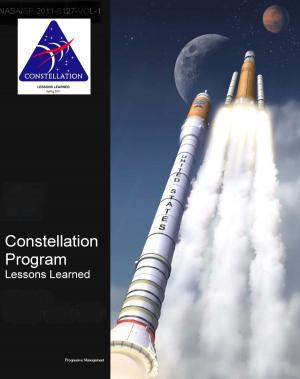Apollo and America's Moon Landing Program: Project Apollo: A Retrospective Analysis - A Narrative Account Starting with the Kennedy Decision, Monograph in Aerospace History
Nonfiction, Science & Nature, Science, Physics, Astronomy, History, Americas| Author: | Progressive Management | ISBN: | 9781466021150 |
| Publisher: | Progressive Management | Publication: | November 26, 2011 |
| Imprint: | Smashwords Edition | Language: | English |
| Author: | Progressive Management |
| ISBN: | 9781466021150 |
| Publisher: | Progressive Management |
| Publication: | November 26, 2011 |
| Imprint: | Smashwords Edition |
| Language: | English |
This official NASA history document - converted for accurate flowing-text e-book format reproduction - presents a narrative account of the Apollo lunar landing program from its origin through its assessment.
The preface states: "The program to land an American on the Moon and return safely to Earth in the 1960s has been called by some observers a defining event of the twentieth century. Pulitzer Prize-winning historian Arthur M. Schlesinger, Jr., even suggested that when Americans two centuries hence study the twentieth century, they will view the Apollo lunar landing as the critical event of the century. While that conclusion might be premature, there can be little doubt but that the flight of Apollo 11 in particular and the overall Apollo program in general was a high point in humanity's quest to explore the universe beyond Earth."
From the introduction: "On 25 May 1961 President John F. Kennedy announced to the nation a goal of sending an American safely to the Moon before the end of the decade. This decision involved much study and review prior to making it public, and tremendous expenditure and effort to make it a reality by 1969. Only the building of the Panama Canal rivaled the Apollo program's size as the largest non- military technological endeavor ever undertaken by the United States; only the Manhattan Project was comparable in a wartime setting. The human spaceflight imperative was a direct outgrowth of it; Projects Mercury (at least in its latter stages), Gemini, and Apollo were each designed to execute it. It was finally successfully accomplished on 20 July 1969, when Apollo 11's astronaut Neil Armstrong left the Lunar Module and set foot on the surface of the Moon."
Contents include: The Kennedy Perspective on Space * The Soviet Challenge Renewed * Reevaluating NASA's Priorities * The NASA Position * Decision * An Assessment of the Decision * Gearing Up for Project Apollo * The Program Management Concept * How Do We Go to the Moon? * Prelude to Apollo: Mercury * Bridging the Technological Gap: From Gemini to Apollo * Satellite Support of Apollo * Building Saturn * The Apollo Spacecraft * The Lunar Module * Trips to the Moon * A Meaning for Apollo
This official NASA history document - converted for accurate flowing-text e-book format reproduction - presents a narrative account of the Apollo lunar landing program from its origin through its assessment.
The preface states: "The program to land an American on the Moon and return safely to Earth in the 1960s has been called by some observers a defining event of the twentieth century. Pulitzer Prize-winning historian Arthur M. Schlesinger, Jr., even suggested that when Americans two centuries hence study the twentieth century, they will view the Apollo lunar landing as the critical event of the century. While that conclusion might be premature, there can be little doubt but that the flight of Apollo 11 in particular and the overall Apollo program in general was a high point in humanity's quest to explore the universe beyond Earth."
From the introduction: "On 25 May 1961 President John F. Kennedy announced to the nation a goal of sending an American safely to the Moon before the end of the decade. This decision involved much study and review prior to making it public, and tremendous expenditure and effort to make it a reality by 1969. Only the building of the Panama Canal rivaled the Apollo program's size as the largest non- military technological endeavor ever undertaken by the United States; only the Manhattan Project was comparable in a wartime setting. The human spaceflight imperative was a direct outgrowth of it; Projects Mercury (at least in its latter stages), Gemini, and Apollo were each designed to execute it. It was finally successfully accomplished on 20 July 1969, when Apollo 11's astronaut Neil Armstrong left the Lunar Module and set foot on the surface of the Moon."
Contents include: The Kennedy Perspective on Space * The Soviet Challenge Renewed * Reevaluating NASA's Priorities * The NASA Position * Decision * An Assessment of the Decision * Gearing Up for Project Apollo * The Program Management Concept * How Do We Go to the Moon? * Prelude to Apollo: Mercury * Bridging the Technological Gap: From Gemini to Apollo * Satellite Support of Apollo * Building Saturn * The Apollo Spacecraft * The Lunar Module * Trips to the Moon * A Meaning for Apollo















